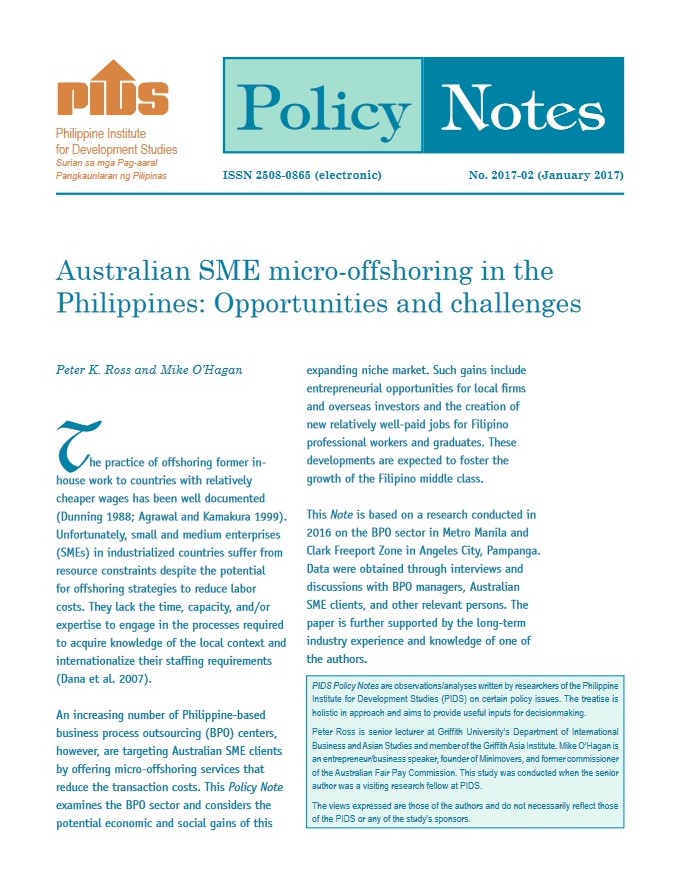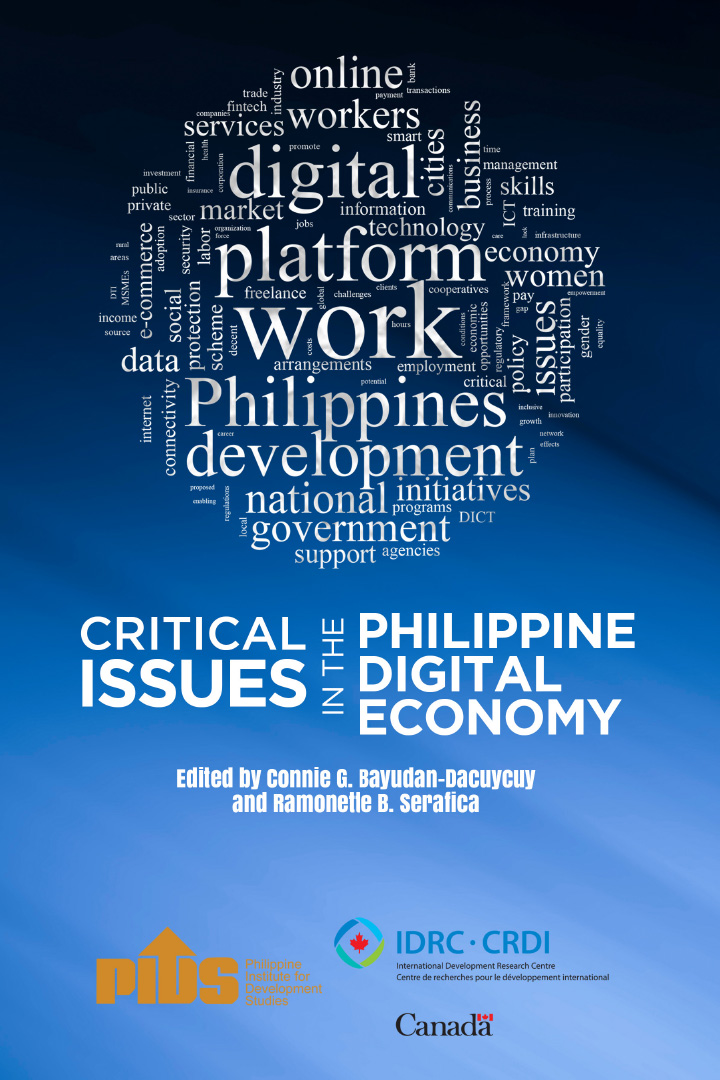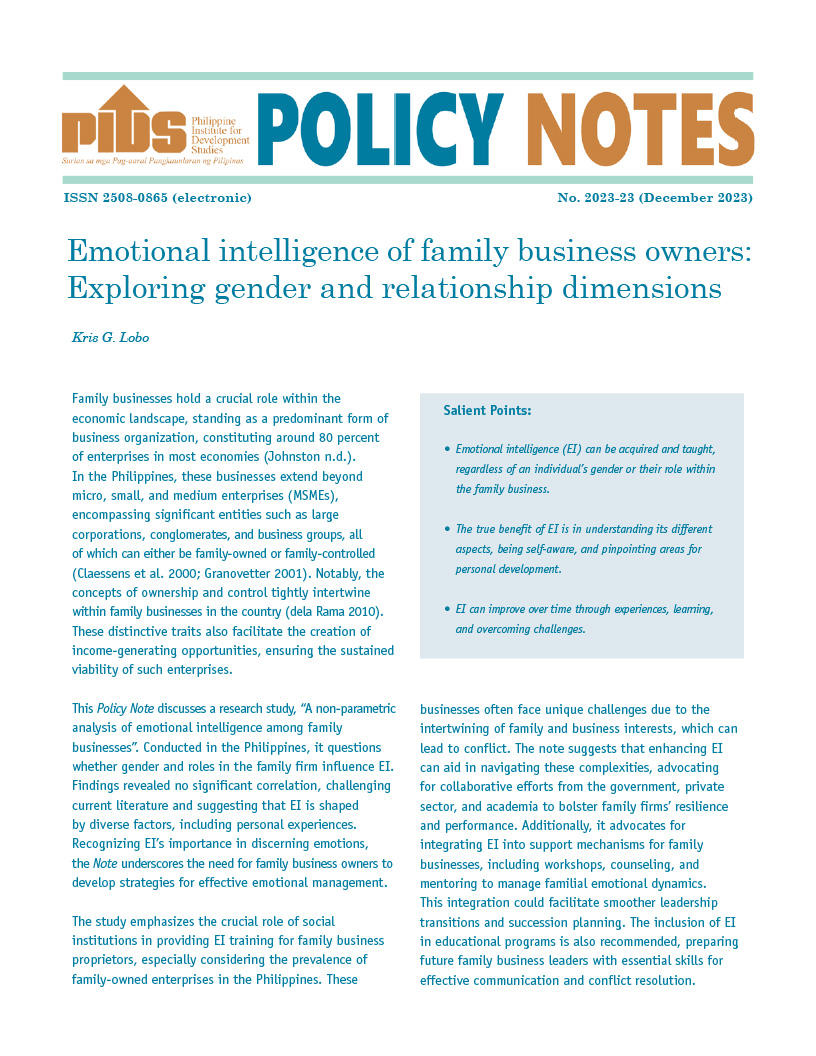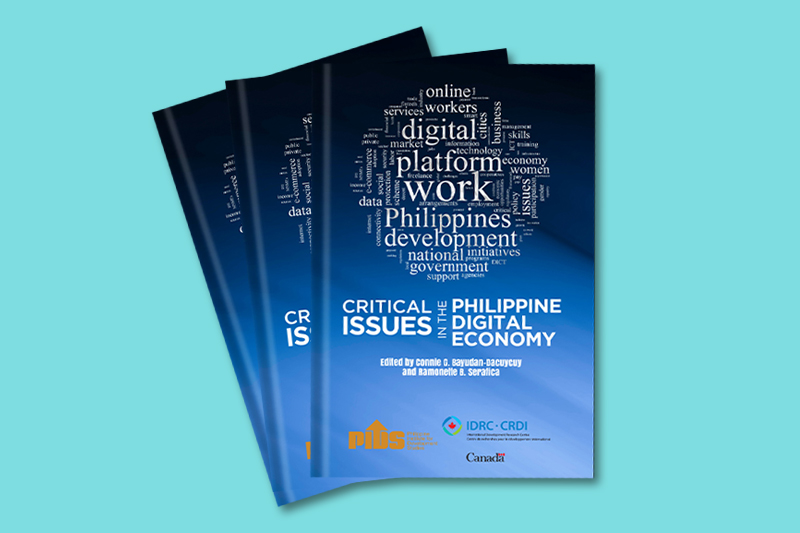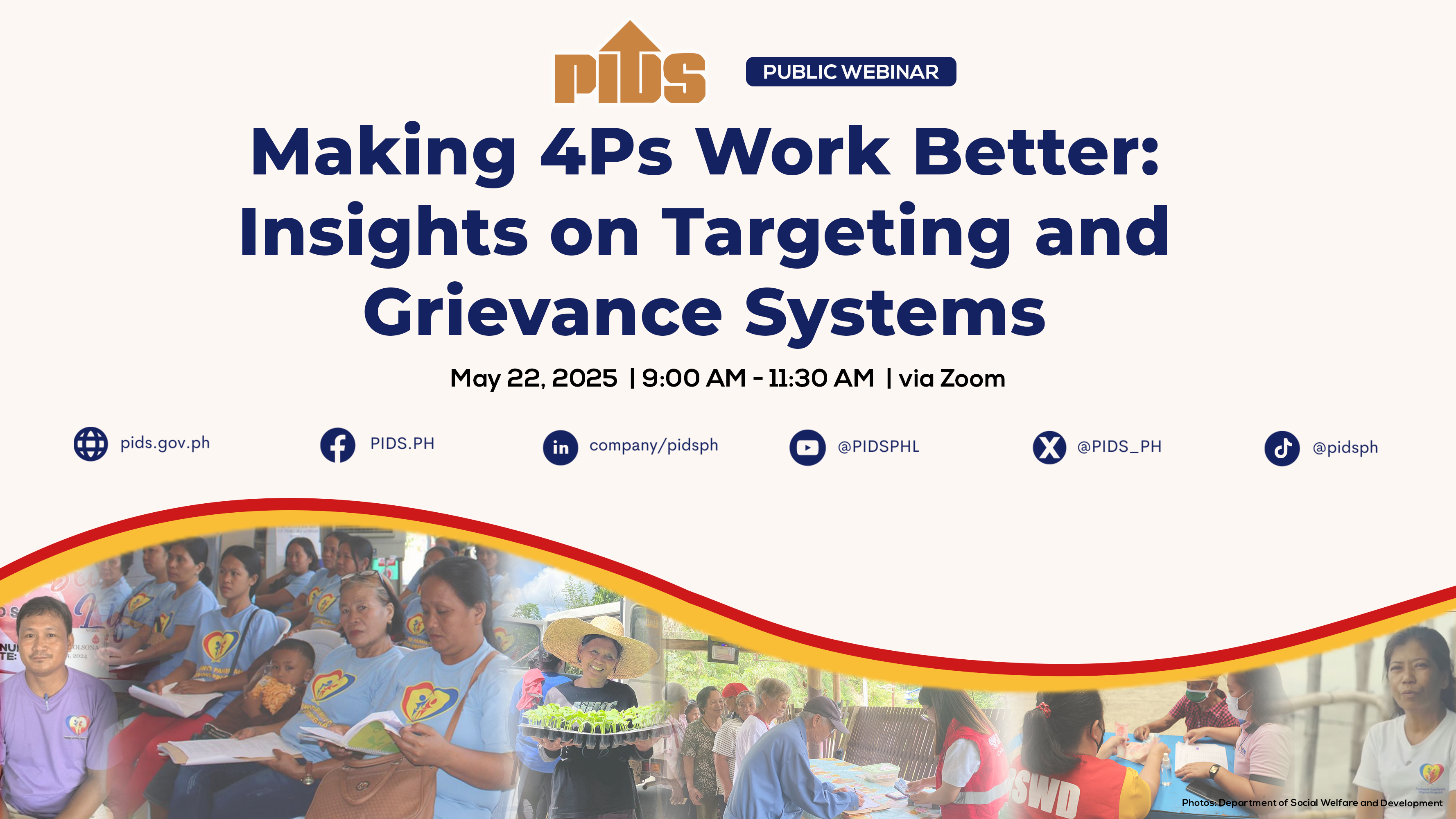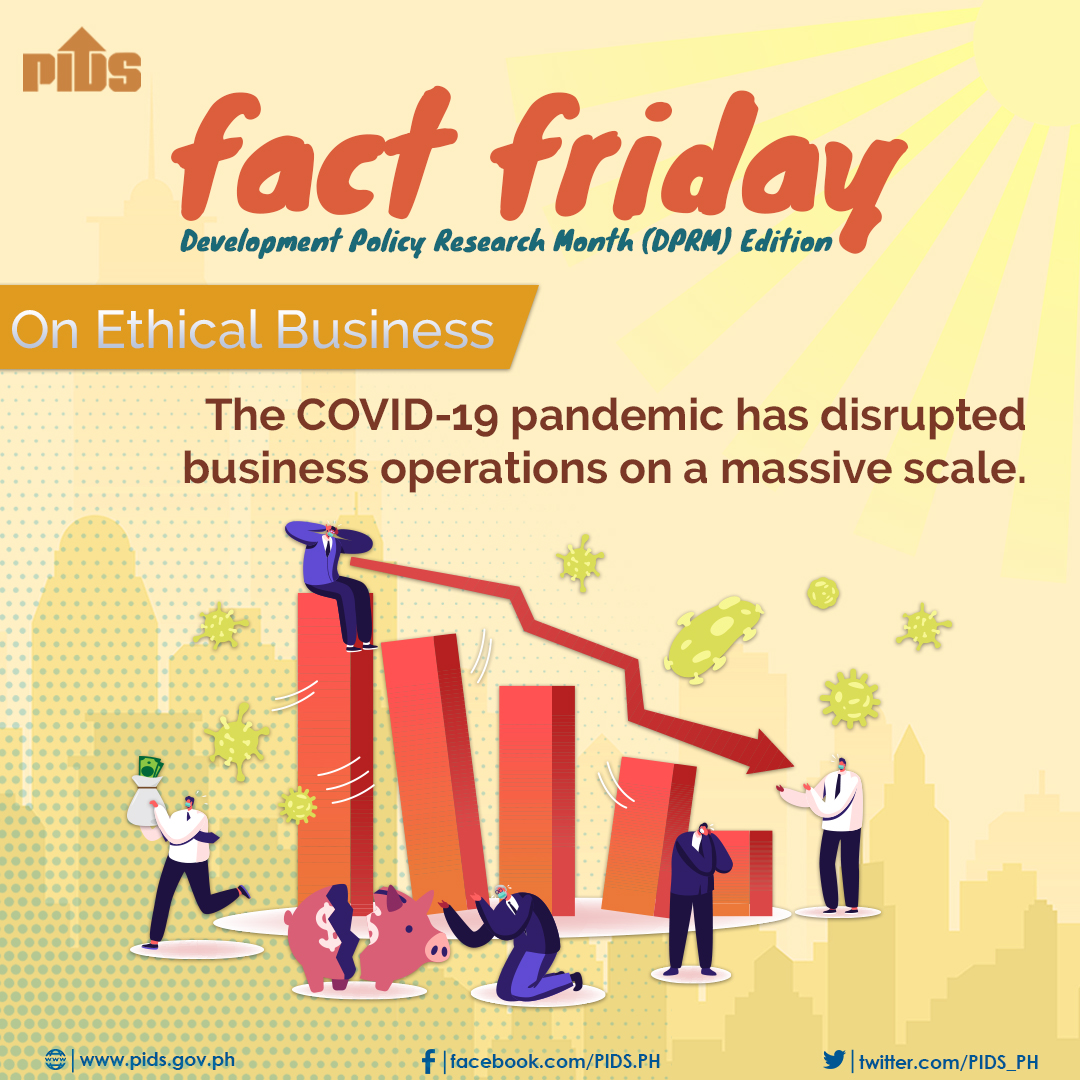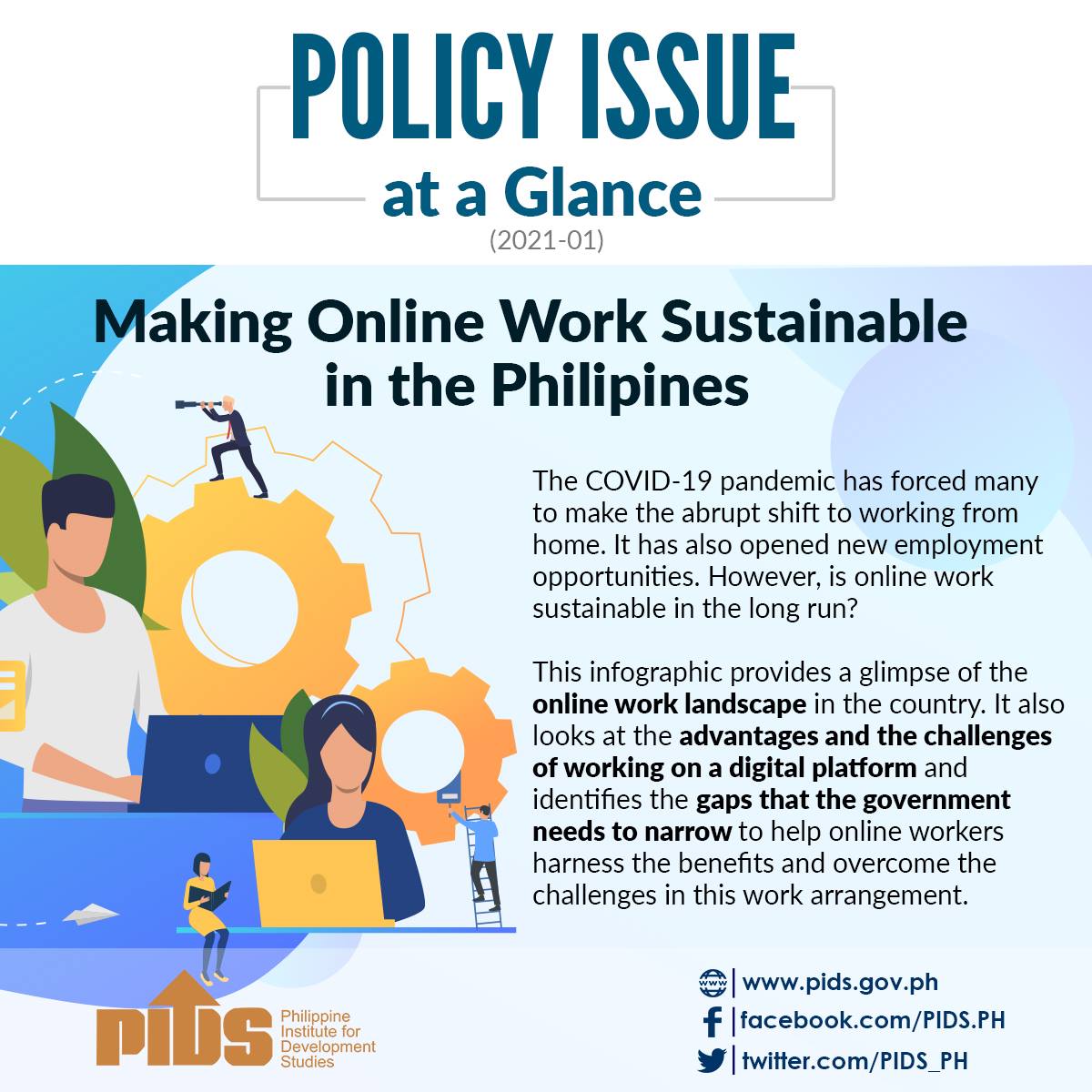The Philippines took 95th place on the World Bank rankings for Ease of Doing Business, gaining the second highest leap in the charts for the 2015 report. But it's still not enough to beat neighbors Thailand (26th), Viet Nam (78th), and Malaysia (18th). A new policy note released by state think tank Philippine Institute for Development (PIDS) reviews the elements of a good business environment, and what an increase in ease of doing business (EoDB) can bring to the table for APEC and its member-states.
Commissioned by the Philippine APEC Study Center Network in anticipation of the Asia-Pacific Economic Cooperation Summit 2015, the policy note, written by PIDS consultants Ronald Mendoza, Tristan Canare, and Alvin Ang, provides a comprehensive review of literature on EoDB and an evaluation of the performance of APEC economies in creating a good business environment as individual member-states and as a region.
The goal of the APEC`s Ease of Doing Business Initiative is to make the regional business environment `cheaper, faster and easier` through regulatory reform. The priority areas identified when the framework was launched in Singapore in 2009 include starting a business, getting credit, enforcing contracts, trading across borders, and dealing with permits.
So far, progress has been uneven. The authors have learned that dealing with construction permits and getting credit are slower than starting a business.
Many of the challenges encountered were political cycles, leadership commitment, communication with constituencies and stakeholders, inter-institutional coordination, and commitment to reforms, among many others.
The authors looked at the structure of each priority area in each member-state to see how each one is handled, and also to understand how each one plays an interrelated role in helping generate the kind of environment that allows private sectors and business to thrive.
The authors cited Avinash Dixit to enumerate the `three essential well-functioning institutions of an efficient market`, which are secure property rights, enforcement of contracts, and collective actions.
Secure property rights send a strong message to investors, that an economy has capable institutions that can take care of their investments. Investor protection mechanisms enable a good business environment, thereby encouraging more investments.
Another vital institution crucial to doing business is infrastructure. One study points that infrastructure and regulatory reforms are the main improvements that developing countries can focus on. Others go as far to say that building strong infrastructure and regulatory institutions is more important for developing countries than focusing too much on tariffs.
Lastly, the authors underline that when it comes to tax rates and systems, the administration of tax is `equally, if not more, important`, particularly when it comes to making it easier and simplified for people to comply with tax laws.
In its new report, the World Bank introduced Distance to Frontier (DTF) to measure performance and determine ranking in EoDB. DTF measures the distance between an economy’s current standing on a particular criteria and the best performance for that criteria. Examined by these measurements, the Philippines once again is second to Russia in terms of improved ranking, while performance for the rest of the APEC nations overall remains mixed.
The authors underscored three most commonly implemented and effective practices for improved performance of shaping a good business environment: streamlining and simplification of procedures, creation of an electronic platform to make trade easier, and implementation of a single interface for transactions. These practices are already endorsed by the APEC.
They suggested adding more indicators to the priority list of APEC member-states and emphasized indicators that produce the most beneficial impact, like investor protection and a strong tax system. Incorporating the DTF measure may also be used to measure a country’s progress.
It is important, they added, that APEC member-states cooperate, understand, and take the opportunity to help each other through the sharing of best practices. Improving performance for all APEC nations will benefit the business environment not only of individual economies but that of the entire region.
For reference, you may access the full Policy Note here http://dirp3.pids.gov.ph/webportal/CDN/PUBLICATIONS/pidspn1509_rev2.pdf
Commissioned by the Philippine APEC Study Center Network in anticipation of the Asia-Pacific Economic Cooperation Summit 2015, the policy note, written by PIDS consultants Ronald Mendoza, Tristan Canare, and Alvin Ang, provides a comprehensive review of literature on EoDB and an evaluation of the performance of APEC economies in creating a good business environment as individual member-states and as a region.
The goal of the APEC`s Ease of Doing Business Initiative is to make the regional business environment `cheaper, faster and easier` through regulatory reform. The priority areas identified when the framework was launched in Singapore in 2009 include starting a business, getting credit, enforcing contracts, trading across borders, and dealing with permits.
So far, progress has been uneven. The authors have learned that dealing with construction permits and getting credit are slower than starting a business.
Many of the challenges encountered were political cycles, leadership commitment, communication with constituencies and stakeholders, inter-institutional coordination, and commitment to reforms, among many others.
The authors looked at the structure of each priority area in each member-state to see how each one is handled, and also to understand how each one plays an interrelated role in helping generate the kind of environment that allows private sectors and business to thrive.
The authors cited Avinash Dixit to enumerate the `three essential well-functioning institutions of an efficient market`, which are secure property rights, enforcement of contracts, and collective actions.
Secure property rights send a strong message to investors, that an economy has capable institutions that can take care of their investments. Investor protection mechanisms enable a good business environment, thereby encouraging more investments.
Another vital institution crucial to doing business is infrastructure. One study points that infrastructure and regulatory reforms are the main improvements that developing countries can focus on. Others go as far to say that building strong infrastructure and regulatory institutions is more important for developing countries than focusing too much on tariffs.
Lastly, the authors underline that when it comes to tax rates and systems, the administration of tax is `equally, if not more, important`, particularly when it comes to making it easier and simplified for people to comply with tax laws.
In its new report, the World Bank introduced Distance to Frontier (DTF) to measure performance and determine ranking in EoDB. DTF measures the distance between an economy’s current standing on a particular criteria and the best performance for that criteria. Examined by these measurements, the Philippines once again is second to Russia in terms of improved ranking, while performance for the rest of the APEC nations overall remains mixed.
The authors underscored three most commonly implemented and effective practices for improved performance of shaping a good business environment: streamlining and simplification of procedures, creation of an electronic platform to make trade easier, and implementation of a single interface for transactions. These practices are already endorsed by the APEC.
They suggested adding more indicators to the priority list of APEC member-states and emphasized indicators that produce the most beneficial impact, like investor protection and a strong tax system. Incorporating the DTF measure may also be used to measure a country’s progress.
It is important, they added, that APEC member-states cooperate, understand, and take the opportunity to help each other through the sharing of best practices. Improving performance for all APEC nations will benefit the business environment not only of individual economies but that of the entire region.
For reference, you may access the full Policy Note here http://dirp3.pids.gov.ph/webportal/CDN/PUBLICATIONS/pidspn1509_rev2.pdf

